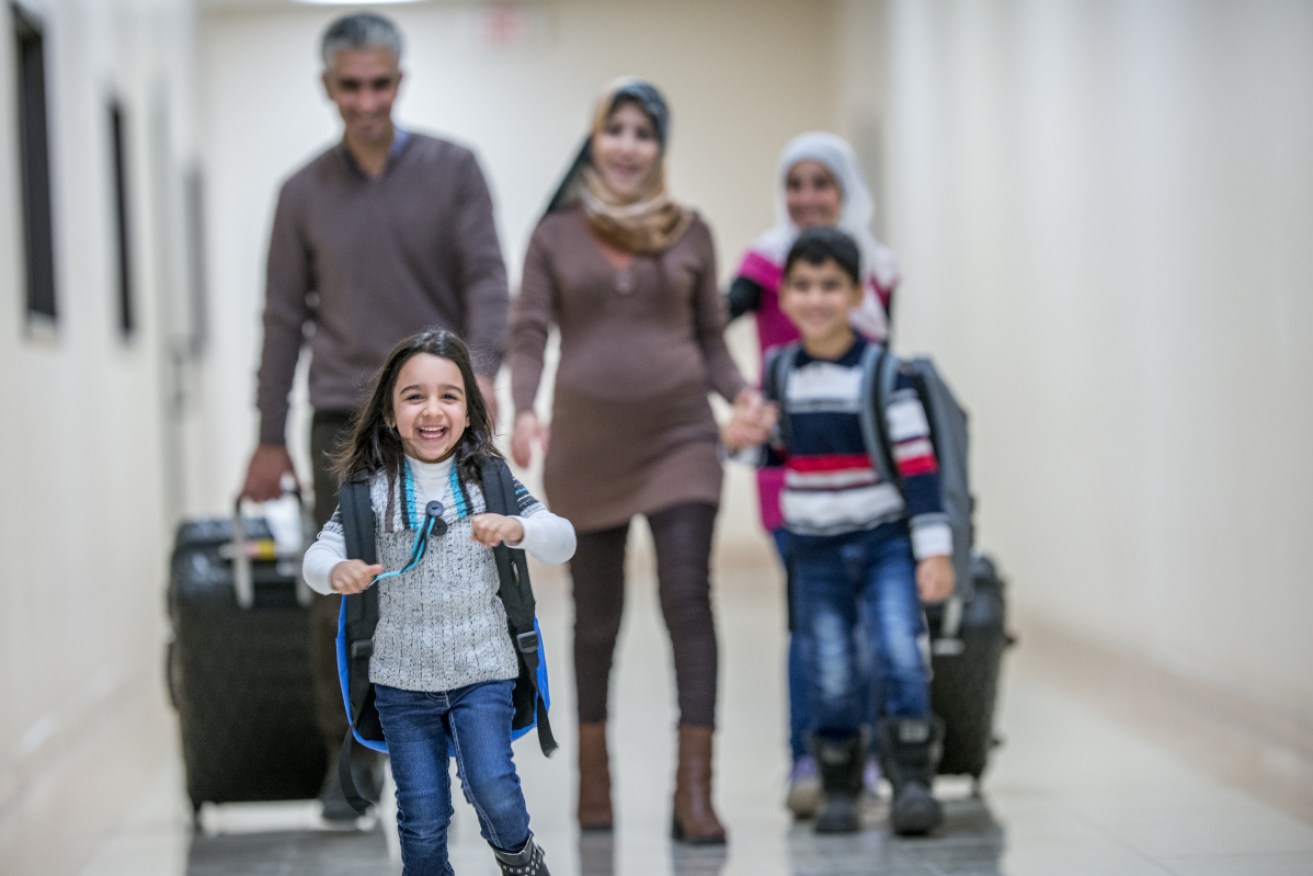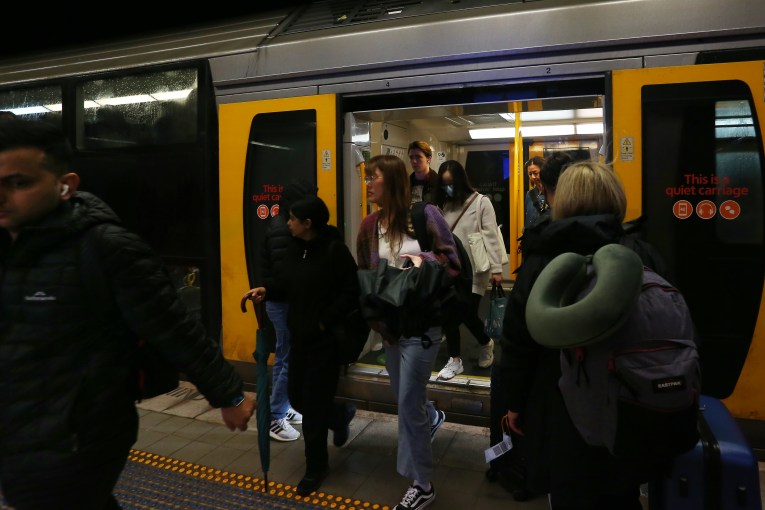Seven out of eight Syrian and Iraqi refugees are without work, study finds


Young refugees living in Victoria were the most likely of those living in any state to feel welcome. Photo: Getty
Just one in eight Syrian and Iraqi adults resettled under a special humanitarian intake have found somewhere to work, two years after most of the refugees started moving to Australia.
Research shows that more than 40 per cent of refugees surveyed already spoke English “well” or “very well” – but still many adults are yet to find work.
Even highly trained, skilled refugees are not seeking employment as they focus on boosting their language skills. And because their qualifications may not be recognised here, workers often have to take up more menial positions than the jobs they had.

Osama Butti, pictured with his family, has struggled for more than three years to find a permanent job.
Iraqi refugee Osama Butti, who arrived in 2015, told The New Daily new arrivals like him struggled with a classic Catch 22.
“If you don’t have the experience working in Australia, you are not going to get a job. So how am I going to get the experience if I don’t have a job?” the former marketing manager said.
The 54-year-old, who was the first of 12,000 extra refugees accepted by Australia because of the Syria-Iraq conflict, said he had been working four casual jobs because he had failed to secure a full-time role. He believes he has been discriminated against because of his age.
Mr Butti, a married father of two teens, said he constantly fears he may not get enough hours to pay bills and save.
Lead researcher in the study, Professor Jock Collins, from the University of Technology Sydney, said most of the adult refugees who responded to the survey were highly-paid professionals who arrived in Australia in 2017.
Many had not yet started looking for a job because they were still learning English, he said, with 20 per cent indicating they understood no English.
The news isn’t all bad
While the survey of 200 refugee families that immigrated to Victoria, New South Wales or Queensland, found only 12 per cent of adults had a paid job, most of the survey findings were positive.
On the upside, all refugee parents believed their children had a bright future, with three out of five adults, or 59 per cent, saying they were “very happy” or “mostly happy” with their lives here.
Victoria was the most welcoming state and had the best schooling arrangements, the survey found.
None of the refugees in the southern state said they felt unwelcome or that their schooling was “bad”. Instead, 62 per cent classed the education as “very good” or “excellent”.
In NSW, 7 per cent of refugees did not feel welcome “at all”, compared with 5 per cent in Queensland.
The study also found more than 80 per cent of refugees felt safe in their local communities. Just over 40 per cent of the respondents said it was “easy” to speak with their neighbours.
Professor Collins was hopeful the outcomes of the special intake program – announced by the federal government in 2015 – would further improve.
He pointed to another study, which showed almost 60 per cent of Syrian refugees who arrived in Canada between November 2015 and December 2016, had secured employment.
“What we should see is that repeats itself here … The rate of jobs amongst the Syrian and Iraqi refugees should increase dramatically in the next two years,” he said.
But it is important that there are opportunities for refugees to get some employment experience, he said.
While they may be highly-skilled, Professor Collins said many refugees face trouble getting their overseas qualifications recognised in Australia.
“Often they don’t have their papers with them because of the suddenness of their flight,” he noted.
The survey was conducted by researchers from the University of Technology Sydney, Western Sydney University, the University of Sydney Business School and AMES Australia.








